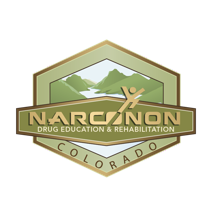Debate Highlights
Lasting Stigma of Addiction

The recent debate highlighted not only that addiction is a problem for all of us, but that the stigma of addiction is still a significant roadblock for some. Addiction is not a political issue, and we won’t repeat what was said. The truth is it highlights the fact that addiction can strike anyone and the road back is often a difficult one.
For a long time, addiction was considered as a shameful condition where a person was viewed as weak, lacking willpower, or a moral compass. Addicts were thrown their fair share of societal prejudices and even over 20 years into the drug crisis, this type of stigma still exists and it’s something that needs to be dispelled.
“Addiction is not a political issue. The truth is it highlights the fact that addiction can strike anyone and the road back is often a difficult one.”
One of the biggest barriers an addict faces when trying to get clean is the fear of judgment after admitting they have a drug problem. While often, family and friends are understanding and supportive, it’s commonplace to run into very harsh judgments from, let’s say, an aunt, uncle, grandparent, co-worker, or boss. These judgments come from a complete lack of understanding of what addiction is and it honestly comes from a complete misrepresentation of an addict or alcoholic. By misrepresentation I mean the caricature of an addict that has been created by society, the media, and pop culture. The addict or alcoholic is portrayed as a seedy, low-life individual who hangs out in dark alleyways, does drugs under bridges, panhandles for change, staggers around city streets in dirty overcoats, and overall, is viewed as less than human.
On social media sites, the topic of addiction is often polarized. Opinions vary wildly from, “Addicts deserve what they get,” to “Addiction is a disease and I’m a victim.” Neither viewpoint provide an entirely accurate description of the reality of addiction. Some viewpoints however illustrate just how stigmatized addiction is in our culture. From calls that first responders should withhold the life-saving drug Narcan from overdose victims, to depictions of addict’s as morally bankrupt liars and thieves who should just be left to die, social media represents a perfect example of the continuing stigma of addiction.
The stigma of addiction constantly prevents people from getting help or moving forward in life, post-addiction. Even the word “addict” or “alcoholic” is used in a derogatory way, often implying that an addicted person is weak or cowardly. Honestly, one of the most courageous things any person can do is admit they have a problem and ask for help.
One of the reasons some recovery support groups incorporate admitting one’s own addiction and an understanding that we’re all in this together is to try and drop the stigmas, the labels, and the prejudices that keep people from seeking help. Addicts and alcoholics are worth helping and worth saving. If society just flat-out turned its back on anyone who ever became addicted, some pretty influential people never would have had a chance to make a better life for not only themselves but countless others as well. Some addicts and alcoholics go on to do some pretty big things in sobriety. Just look at Robert Downy Jr., Drew Barrymore, Bradley Cooper, Steven Tyler, and the list goes on.
The point here is that this idea that “an addict or an alcoholic is less of a person” needs to be destroyed and shattered. More people need help than ever before and the very least we could do is take away the shameful labels given to drug addicts and allow them to get the help they need without kicking them in the face when they’re already down and out. Addicts and alcoholics do recover and those who recover wind up being some of the most responsible, upstanding members of our society, far beyond the characters who sit safely behind their screens, clacking away at their keyboards, casting judgment down on everyone else.
